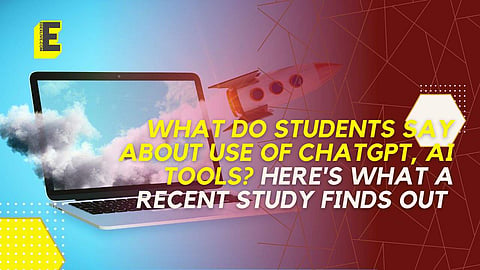

According to a large-scale study in Europe to investigate students' attitudes towards AI in higher education, students are positive towards Artificial Intelligence (AI) tools such as ChatGPT in education, but where the boundary for cheating lies is highly unclear.
As per IANS, researchers from Chalmers University of Technology in Sweden conducted a survey of 6,000 students for the study.
What does the study say?
As per the survey, about 56 per cent of students were positive about using chatbots in their studies and 35 per cent use ChatGPT regularly. However, 62 per cent of students said they believe that using chatbots during exams is cheating.
A majority of the respondents believed that chatbots and AI language tools make them more efficient as students and also argued that such tools improve their academic writing and overall language skills. Almost 95 per cent of the students that took part in the survey are familiar with ChatGPT, the majority use the tool, and 35 per cent use the chatbot regularly.
However, despite their positive attitude towards AI, many students feel anxious and lack clear guidance on how to use AI in the learning environments they are in. It is simply difficult to know where the boundary for cheating lies, IANS stated.
"Most students have no idea whether their educational institution has any rules or guidelines for using AI responsibly, and that is of course worrying. At the same time, an overwhelming majority is against a ban on AI in educational contexts," said Hans Malmstrom, Professor at the Department of Communication and Learning in Science at Chalmers.
Chatbots cannot replace critical thinking
Many students perceive chatbots as a mentor or teachers that can ask questions or get help, for example, with explanations of concepts and summaries of ideas.
Students say that chatbots should be used as an aid, not replace students' own critical thinking.
"You should be able to do the same things as the AI, but it should help you do it. You should not use a calculator if you don't know what the plus sign on it does,” said a student.
Boon for people with disabilities?
Another important aspect that emerged in the survey was that AI serves as an effective aid for people with various disabilities.
A student with attention deficit disorder (ADD) and dyslexia described how they had spent 20 minutes writing down their answer in the survey and then improved it by inputting the text into ChatGPT: "It's like being colour blind and suddenly being able to see all the beautiful colours," the student said.
